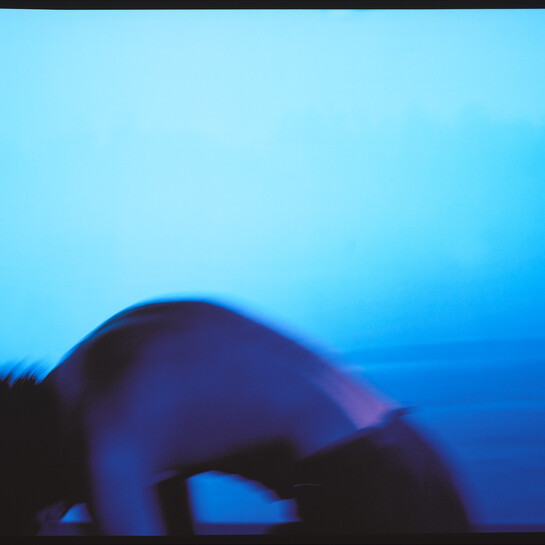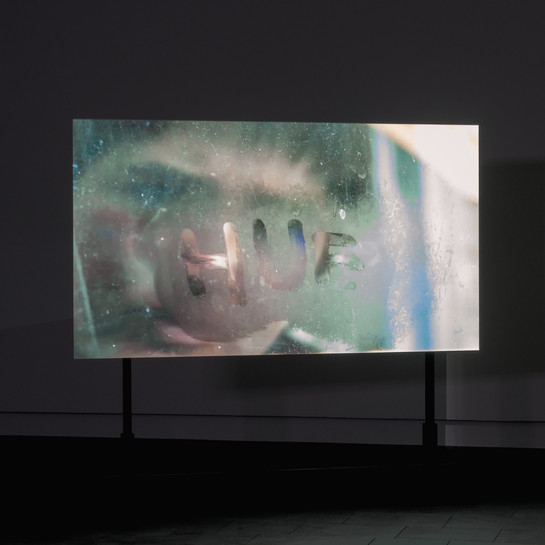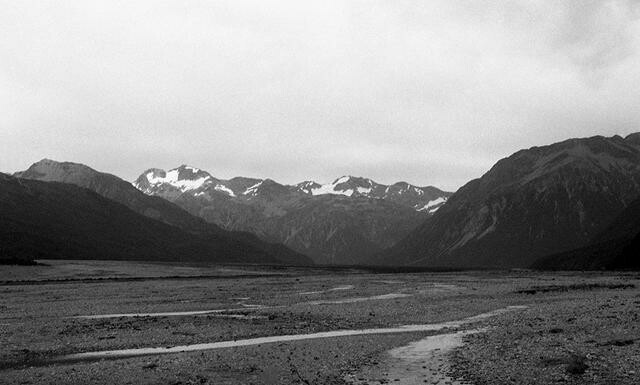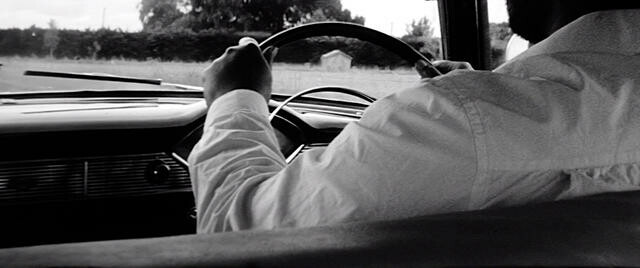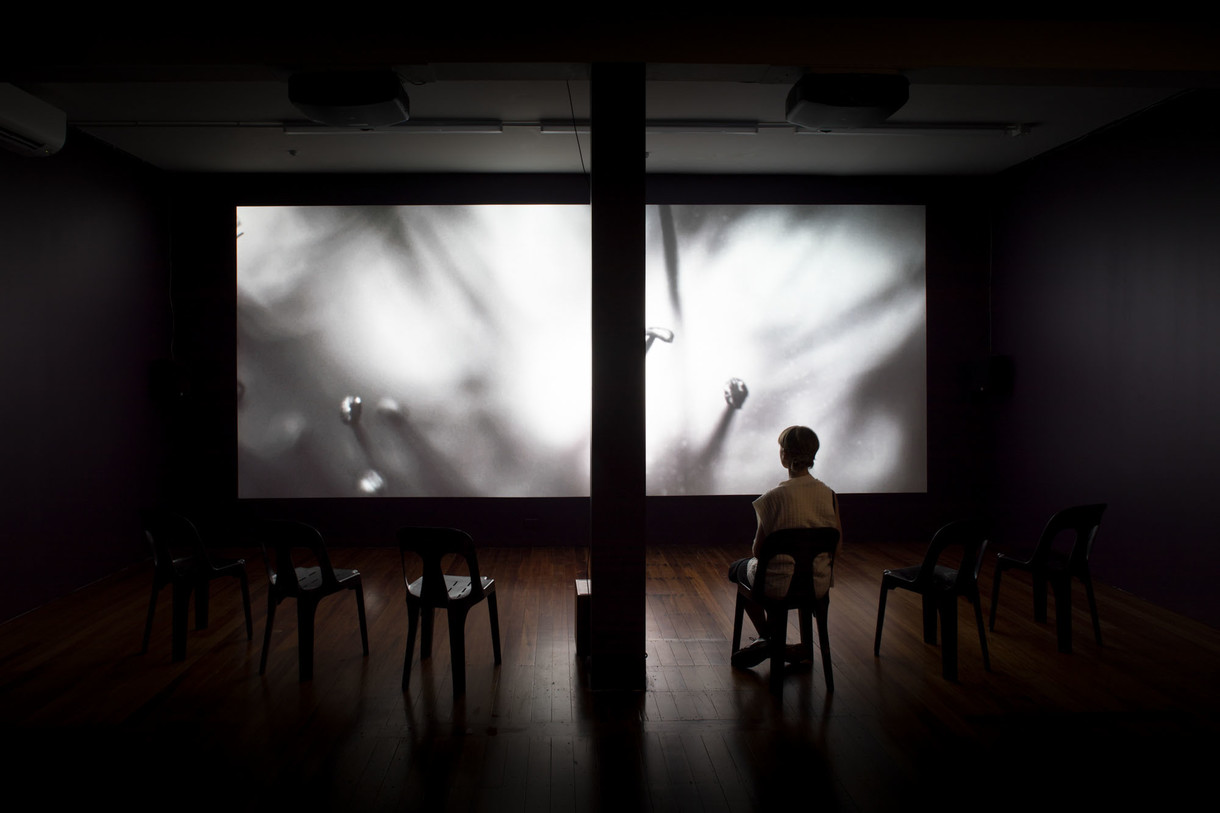Jeremy Leatinu'u
Aotearoa New Zealand, b.1984
Ngāti Maniapoto,
Māori,
Sāmoan,
Pasifika,
German,
Chinese
Te Whakawhitinga
- 2022
- 16mm black and white film transferred to digital video, sound, duration 11 mins
- Purchased 2022
- 2022/088
Location: Arcade
Te Whakawhitinga, the transition from one stage to another, is the central theme in this film by Jeremy Leatinu'u. The protagonist, a young man, makes the journey from his home in the north of Te Ika-a-Māui North Island to Te Waipounamu South Island, where he is to undertake his military training during World War II. In the process, he not only transitions physically from north to south but also personally from youth to adulthood. Leatinu'u's film takes us on a road trip, capturing the wonder of the Te Waipounamu landscape seen for the first time. Vast and immense, the mountain ranges and wide braided rivers form a dramatic backdrop as the protagonist finds his way through a new land so very different to his home. As he explores this new landscape, he experiences a sense of personal discovery, too. Poignant connections are made not only between the landscapes of the north and south, but also our relationships with each other and to the land.
He Kapuka Oneone – A Handful of Soil (from August 2024)
Exhibition History
Te Whakawhitinga follows the journey of a young man who enlists in the army, leaving his home and family farm in the far north to begin his military training in Te Waipounamu. The film travels across time as well as location, from World War Two to the present, and narrates his discovery of further thresholds beyond the physical he needs to cross and overcome.
Using 16mm footage for the first time, the landscape of Waitaha and Ka Tiritiri-o-te-Moana are both backdrop and characters in the film, as we learn of the challenges of finding one’s feet in a new place, surrounded by new people. With Jeremy Leatinu’u’s work, we are invited to slow down and listen to intimate stories that speak of encounter and change, stories that open up much bigger conversations about interrelationships, our histories and the futures we want to make.
Ka whai te kiriata o Te Whakawhitinga i te haerenga o tētahi taitama kua uru ki te ope tauā. Mahue mai ana tana kāinga me te pāmu o te whānau i Te Tai Tokerau e whakangungua ai ia ki ngā rākau riri i Te Waipounamu. Ka tarawhiti te kiriata nei i te wā me te wāhi, mai i Te Riri Tuarua o Te Ao taka rawa ki tēnei wā. Ka kōrerotia tana kite i ngā pae o waho i te ao tangata hei takahi māna.
I whakamahia te rīpene 16mm mō te wā tuatahi. Tū mai ana ngā tūtohu o Waitaha, o Ngā Tiritiri-o-te-moana hei horanuku, hei kiripuaki anō hoki i te kiriata nei. Ka kite haere tātou i ngā taumahatanga o te whai tūranga i tētahi whenua tauhou, i tētahi hunga tauhou. Mā te toi nei a Jeremy Leatinu’u me āta whakarongo, me āta wānanga tātou i ngā pūrākau o te tūtakitaki, o te whanake, o te whakawhanaunga, o te kōrero o nehe, o te wawata.
Cinematography: Ian Powell
Editors: Jeremy Leatinu’u, Ian Powell
Sound design: John Gray
Composer: Tim Prebble
Narration: Hunaara Kaa (Ngāti Porou), Alvie Poata McKree (Ngāpuhi, Ngati Kahu ki Whangaroa)
Translation: Jeremy Leatinu’u, Alvie Mckree
